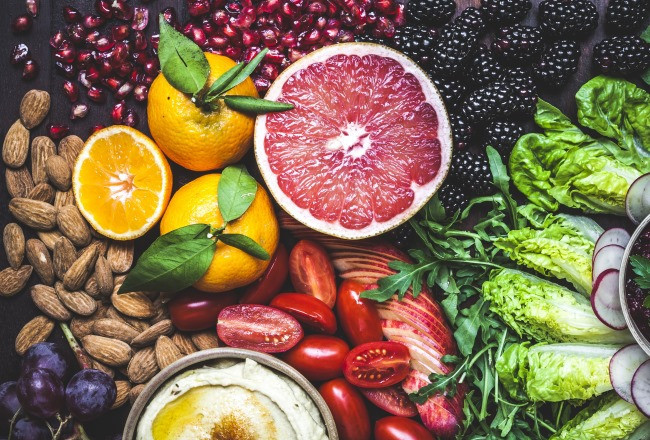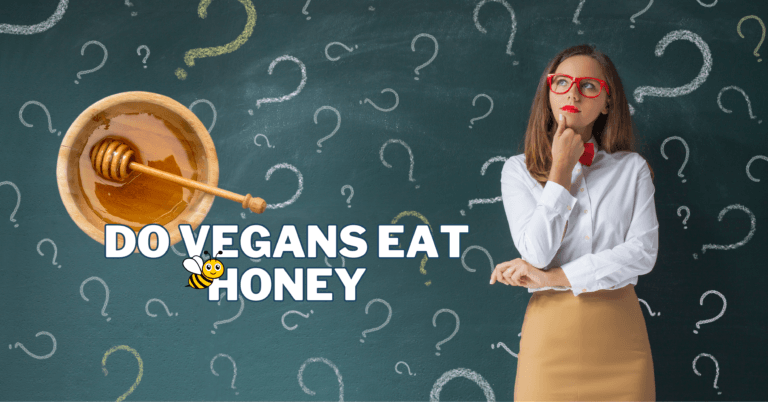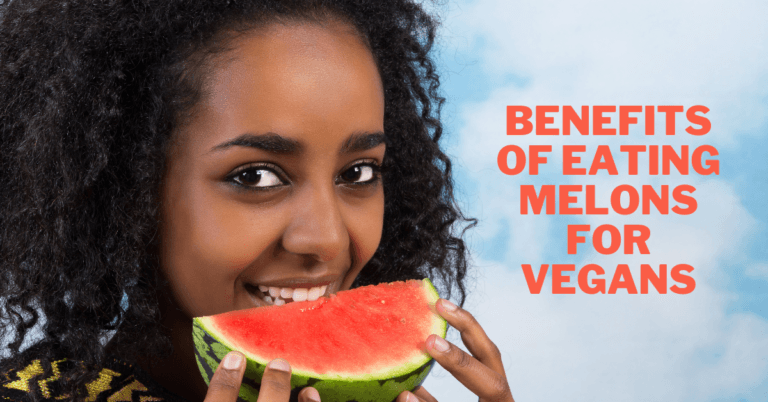How Healthy Is A Vegan Diet Long-Term
How Healthy Is A Vegan Diet Long-Term?
Although health is not everyone’s motivation for becoming vegan, it’s essential to understand if plant-based eating provides the nutrients someone needs when following the diet. Here are the potential health benefits of being vegan explained – and what the research says. Also discussed below are the risks of not planning a diet properly and what nutrients to consider.

Veganism Is Healthy
Health problems may occur if someone’s food intake is inadequate or their diet is high in unhealthy fats and foods rich in sugar, processed food, and refined carbohydrates (although with good reason, too much fat can be dangerous). It’s important to know what you’re eating and how much.
Drinking water is very important. You should drink more than 6 – 8 glasses of water a day can aid the body’s ability to absorb nutrients.
Here’s a list of things that vegans and those on a healthy vegetarian diet should avoid. They avoid certain drinks like cola, coffee, and tea, which often contain high amounts of calories, sugar, and salt, as well as high amounts of unhealthy fats. Caffeine can be consumed in moderate amounts.
The Heart Health Benefits of Veganism
One of the most important benefits of veganism is that it lowers your risk of heart disease and may even reduce your risk of death from heart disease. Dr. David Gillespie, Director of Prevention Research at The British Heart Foundation, says: “While previous studies have suggested a link, the link between animal products and heart health is still very unclear. We don’t yet know what actually causes heart disease.
That’s why we are delighted that this study could identify a vegan diet as one of the key foods which can help reduce heart disease.” More than three-quarters of all cases of heart disease can be avoided with a plant-based diet. In fact, the British Heart Foundation’s 10:2:10 campaign aims to cut the number of people dying from heart disease to under 40,000 by 2030.

The Cancer Health Benefits Of Veganism
When looking at the health benefits of veganism, you can’t talk about them without mentioning cancer prevention. A vegan diet has been consistently linked with a reduced risk of cancer. In a University of Copenhagen study, researchers found that vegans were 20% less likely to get cancer than their meat-eating counterparts.
This reduction of cancer risk is not only due to meat-eating animals having greater amounts of carcinogenic compounds. Vegan diets also decrease the risk because vegan foods, including nuts and seeds, are rich in phytonutrients. Phytonutrients protect against cancer by limiting carcinogenic effects by detoxifying carcinogens and maintaining the body’s integrity against toxins.
Vitamin D And Vitamin B12 Deficiencies
The deficiency of two vitamins causes around 90 percent of all vegan-associated health issues. These two key vitamins are incredibly vital for the healthy functioning of the body and are often the key factor for food intolerance, such as lactose intolerance. Vitamin D As veganism has risen in popularity; people have been getting information about vitamin D.
Although it’s often thought of as a vitamin from sunlight exposure, most vitamin D is made within our bodies and so it’s possible to get enough from eating a balanced diet, like including colourful vegetables. A healthy, fortified breakfast cereal such as Quaker’s Hemp Seed + Mung Bean Oat Cereal is a great option. You can also look for packaged foods with a claim such as ‘preserves 25 percent of daily vitamin D requirements.
Protein, Fat, And Carbohydrate Intake And Physical Performance
We’ve covered how important proteins are to our health. Despite not being meat, poultry or fish, a good vegetarian or vegan diet can still provide enough protein and essential fats. However, a vegan diet also needs a lot of fiber to help avoid constipation, as well as provide health benefits such as weight loss and better gut health.
Another possible concern for vegetarians/vegans is that their diets lack whole grains and other key nutrients. A number of studies have been carried out to investigate this. Based on these studies, it’s concluded that vegan diets provide more than enough protein, dietary fibre, vitamins, minerals, and dietary fiber. Additionally, a vegan diet is the only known way to get enough antioxidants.
Colorectal Cancer And Fiber Recommendations
The first health benefit is that vegetarians, vegans, and even flexitarians who eat nuts and legumes are less likely to be diagnosed with colorectal cancer. In addition, there’s some research that indicates a higher percentage of vegetarians and vegans are part of the body-mass index (BMI) guidelines of normal weight. In other words, they have healthier body weight and maybe at a lower risk for heart disease and type 2 diabetes.
But being obese may not necessarily be a good thing, either. Studies suggest that, among people with a normal BMI, body fat raises your risk for high blood pressure, diabetes, and heart disease. As a result, there’s research that says both obese and underweight people are at higher risk for the development of certain cancers.

Vegetarian Diets For Colon Cancer Prevention
Soya milk was found to reduce colorectal cancer in a study published in 2010. It is often claimed that vegan diets could protect against colorectal cancer. However, this was a case-control study. However, this does not mean the relationship is not worth exploring further. Another published in 2014 found that people who consumed a vegan diet had a 33% lower risk of colorectal cancer than people who had non-vegetarian diets.
There are several reasons why diet might play a role in developing colorectal cancer. These include inadequate fibre intake, not eating enough fruit and vegetables and consuming too much fat. Vegans typically do not eat enough fiber. A typical vegan diet contains around 60g of fibre per day or the equivalent of 1.4 cups of whole grains.
Vegan Diets For Colon Cancer Prevention
Vegan diets are beneficial for reducing the risk of colorectal cancer and overall mortality. This may be due to the vegan diet providing a high intake of vitamin B12 and other micronutrients. The chart below shows how the vegan diet can reduce colorectal cancer risk in study after study.
As a vegan, you are also limiting your consumption of cholesterol, dairy products, and saturated fat. This supports that vegan diets offer a lower risk for cardiovascular disease and cancer. Vegan Diets to Help with Cognitive Impairment and Alzheimer’s There’s plenty of evidence that vegan diets can improve cognitive decline and reduce cognitive impairment in older people. This may be due to the diet’s dietary fiber and antioxidant content.
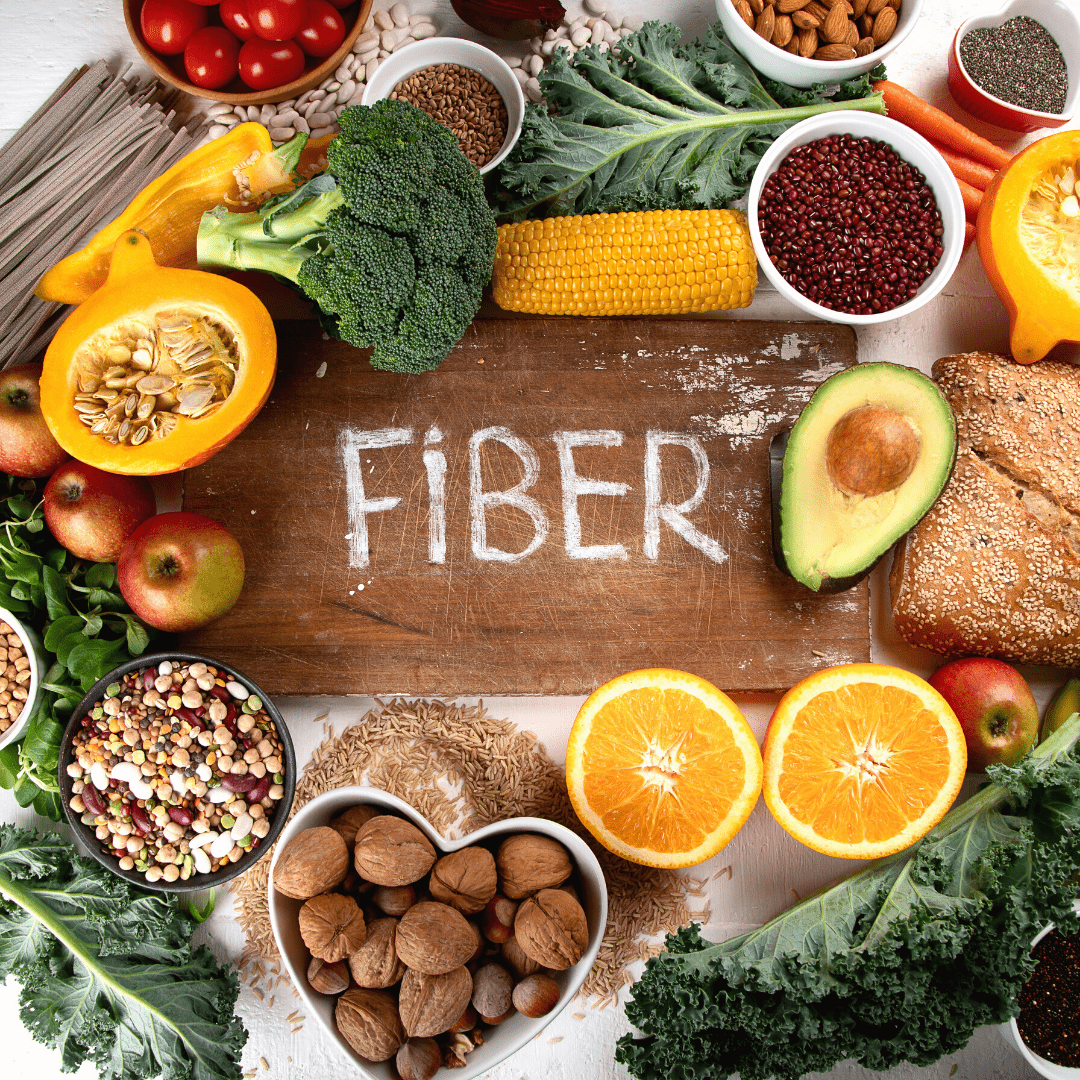
Fibre Recommendations For Vegetarians And Vegans
Most vegans and vegetarians eat adequate amounts of dietary fiber to ensure a low glycemic response to carbohydrates. For the most part, vegans get adequate amounts of fiber by consuming their daily fiber requirements from plant foods. For most vegans, there’s nothing special needed.
However, those who follow a vegan diet should include more vegetable protein (grains and beans), fibre-rich plant food (vegetables), and other plant foods to provide dietary fiber. How much dietary fiber someone needs is based on their age, gender, BMI, ethnicity, and physical activity. The American Heart Association recommends following a fiber intake of at least 25 grams per day, for men and women, in order to prevent heart disease.
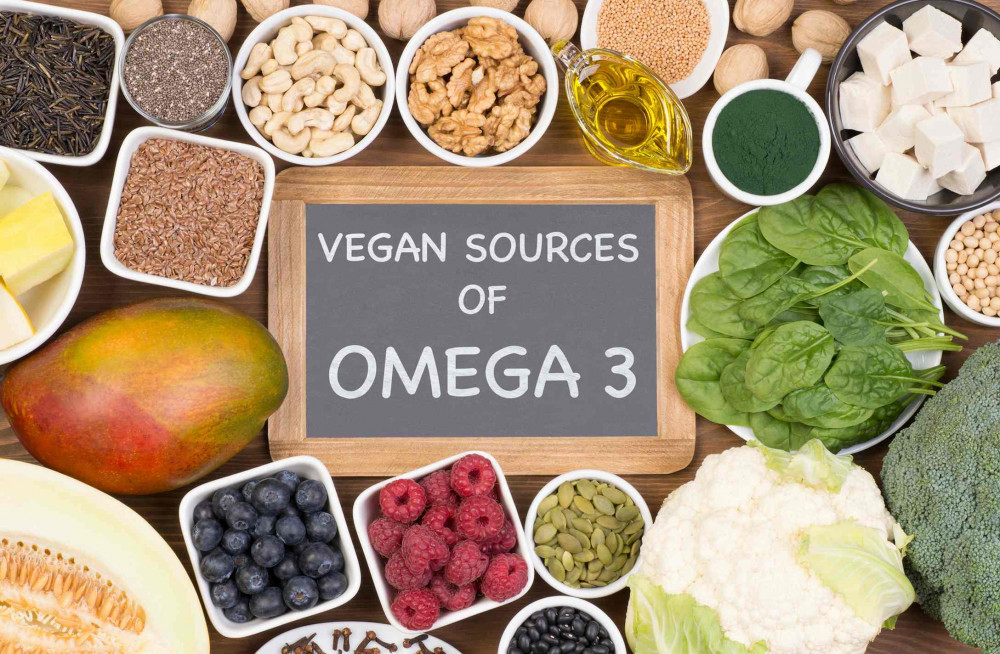
Omega-3s And Other Nutrients To Consider When Planning A Vegan Meal Plan
Omega-3s Omega-3s are a type of fatty acid that most mammals, including humans, make. They are typically found in animal-based products, but the body can make omega-3s from plant sources, as well.
Plant-based omega-3 sources include: Sardines Nuts, including almonds and walnuts Seeds, including flax, hemp, and hemp seeds Fish Fatty fish like salmon and trout But not all omega-3s are created equal. Omega-3s may help control blood cholesterol, reduce inflammation, and aid the absorption of other nutrients in the body. Being vegan could be a good opportunity to replace animal-based omega-3s with plant-based omega-3s. Nuts & Seeds Nuts and seeds contain good amounts of omega-3s.
The Potential Health Benefits Of Being Vegan
Here are the biggest potential health benefits of being vegan: Several studies show that vegan eating is associated with a lower risk for many chronic diseases, including heart disease, diabetes, high blood pressure and several cancers. For vegan dieters, the risk for several health conditions is lower compared to non-vegans:
- The risk for type 2 diabetes was lower in vegan vs. non-vegan adults
- The risk for colorectal cancer was lower in vegan vs. non-vegan adults
- The risk for gallstones was lower in vegan vs. non-vegan adults
- The risk for breast cancer was lower in vegan vs. non-vegan adults
- The risk for ovarian cancer was lower in vegan vs. non-vegan adults
- The risk for prostate cancer was lower in vegan vs.
The Risks Of Not Planning A Diet Properly
Having a well-planned diet is essential in avoiding malnutrition. In her book Vegan Body and Soul: The Benefits of Plant-Based Eating for Optimal Health and a Joyful Lifestyle, Lara Zaragoza states, “I’m not saying you need to know how to cook all these recipes or have all these tools on hand. It’s okay if you don’t.”
However, there are some general guidelines. Larazza recommends using her blog, The Vegan Meal Plan, for meal planning. She also suggests: Making weekly meals and snacks. Planning meals that can be made in one pot, which saves time. Using frozen foods to stretch the meal out. Finding a friend to trade meals with.
What To Eat On A Plant-Based Diet
You can gain essential nutrients and minerals from the following sources on a vegan diet: Vegetables, fruit, nuts and legumes. A diet with high levels of fruit and vegetables and high levels of fiber improves cholesterol levels, insulin sensitivity, and weight control. Animal foods, such as meat, fish, seafood, eggs, poultry, and dairy, offer high levels of protein, vitamins, and minerals, as well as important fatty acids, such as omega-3s. A complete diet will have these sources in amounts that meet your needs.
Dietary Guidelines on Vegetarian vs. Vegan Diets
The Dietary Guidelines for Americans (DGA) recommend a diet that includes at least 20% of calories from carbohydrates and about 35% from fat.

Protein And Fat Sources
Fat is an essential part of a healthy diet, and the question of whether one can get enough of it without eating meat or dairy is a question that has long intrigued the vegan community. Part of the problem is that, while many plant-based foods are very high in fiber, protein, and other essential nutrients, none are typically high in fat.
If you are looking to get the required amount of fat, a handful of nuts, a few tablespoons of coconut oil or an avocado, a small quantity of cheese, a palm kernel or flaxseed oil (on its own or in salad dressings), can be enough. But it’s important to be aware of how much-saturated fat you get, and how it may impact your health and weight.
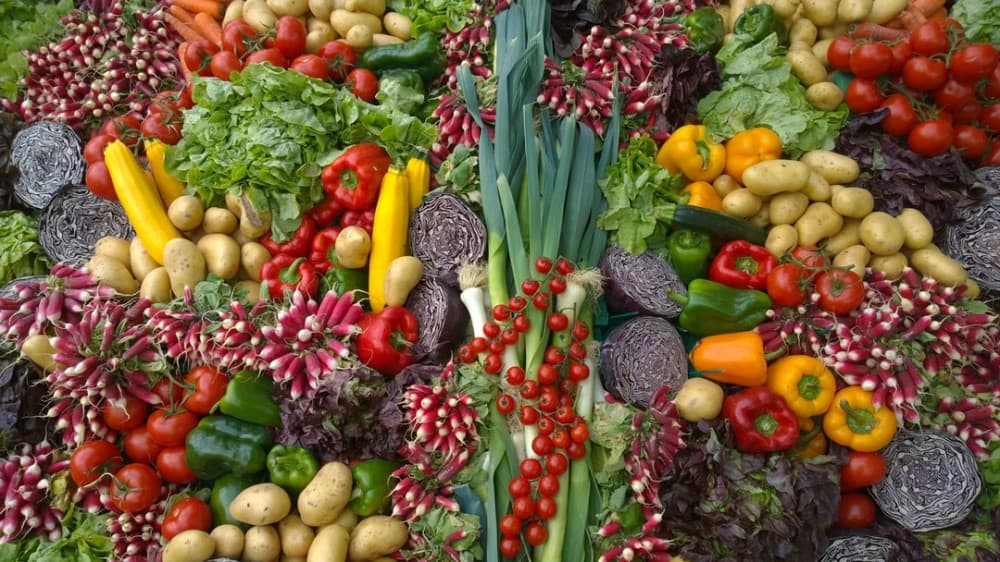
Vegetables, Fruits, And Berries
Vegan foods are rich in vitamins, minerals, fiber, and various plant nutrients. With vegan diets, nutrients are intact or in their most bioavailable forms. This means they’re available to our bodies. Vegetables and fruits are rich in antioxidants and other nutrients that prevent degenerative diseases. (Some nutrients, like folate, can be found in animal products.)
These benefits are both short-term and long-term. The benefits to our bodies provide tremendous cardiovascular benefits and can also reduce the risk of certain cancers. There’s also research to show that switching to a plant-based diet can reduce one’s risk of heart disease. Also, the health benefits of switching to a plant-based diet increase the longer a person maintains a diet of this type.
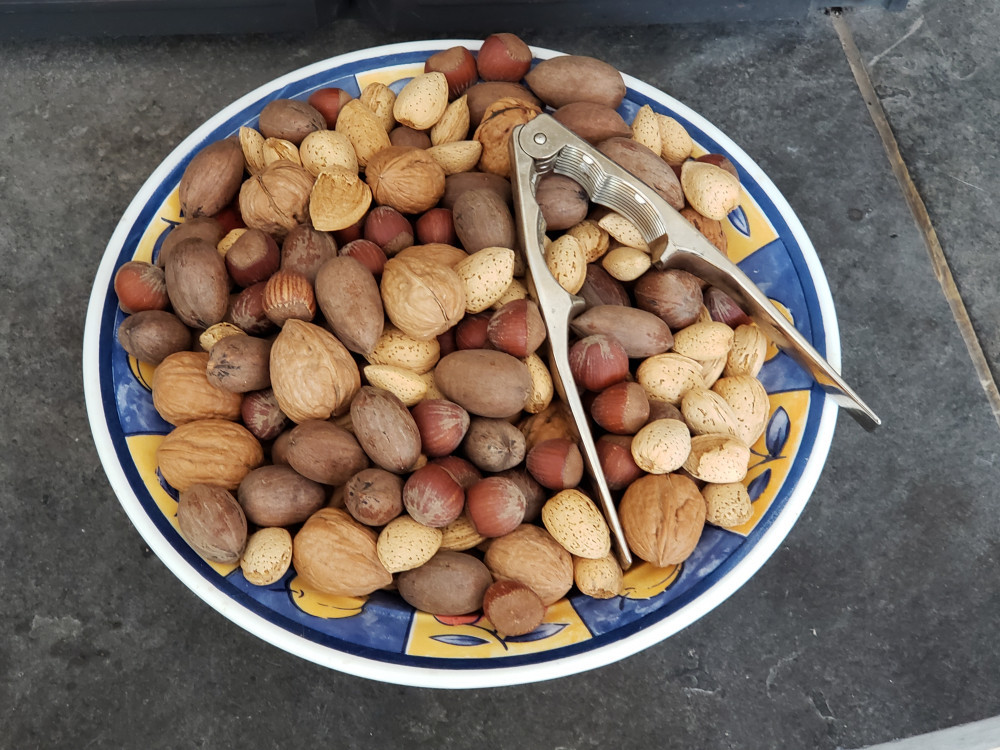
Nuts, Seeds, And Beans
A good vegan diet should include beans, nuts, seeds, and grains. These nutrients are believed to contribute to a healthy body. They help promote heart health and aid in reducing the risk of developing heart disease. Almonds and walnuts are rich in essential fats and omega-3 fatty acids, which can help with heart and blood vessel health, lower blood pressure, and support the immune system.
Legumes have fiber, manganese, vitamin E, potassium, copper, and protein. They also provide iron and calcium. Fortified plant-based milk and drinks Almond milk, soy milk, coconut milk, rice milk, hemp milk, coconut cream, hemp hearts, and cashew milk are all products fortified with calcium, vitamin D, vitamin B12, and iron.
Helps To Manage Weight
According to a 2019 systematic review, there is robust evidence that plant-based diets are more beneficial than conventional diets for weight loss. Interestingly, this is not due to fewer calories, as some people might assume. Instead, the review suggests that multiple mechanisms may help weight loss, including better blood sugar control, lower inflammation, and altered intestinal activity.
Reduces Risks Of Chronic Diseases
A review of findings from Adventist studies indicates that vegetarian diets show a lower risk for cardiometabolic diseases and some cancers, while also offering additional protection against the following outcomes:
- obesity
- cardiovascular mortality
- type 2 diabetes
- hypertension
According to the review, vegans have lower body mass index (BMI) and cholesterol levels than vegetarians, which may account for the additional health benefits.
Improves Gut Bacteria
Gut bacteria, which scientists refer to as the microbiome, is a huge area of interest for researchers due to how it influences health and disease. Research indicates that microbial communities in the gut and saliva differ between plant-based and omnivorous diets. Plant foods contain fiber which acts as a ‘prebiotic’ to feed beneficial bacteria, and this may help to increase bacterial diversity.
Although scientists need to do more studies, it seems that Prevotella bacterial abundance in vegans may be beneficial for regulating blood sugar and weight. Gut bacteria also influence cognitive and mental health via the microbiome-gut-brain axis. Put simply, bacteria in the gut can have a positive impact on the brain. However, the evidence for the effects of strictly plant-based diets on cognition is limited.
Anti-Inflammatory And Antioxidant
Healthy vegan diets are abundant in fruits and vegetables, which contain beneficial photochemical and antioxidants. These plant compounds fight free radicals, which cause damage to the body and help to prevent inflammation. While inflammation can be a beneficial immune response, chronic low-grade inflammation is a fundamental part of many health issues and diseases. Research indicates that plant foods can prevent the formation of reactive oxygen species and oxidize low-density lipoprotein (LDL) cholesterol – major contributors to heart disease.
Another study suggests a whole food plant-based diet may prevent cellular damage and skin ageing. Additionally, eating more plant compounds such as flavonoids and anthocyanins is associated with a reduced rate of cognitive decline due to their beneficial effect on inflammatory processes. Furthermore, a study suggested that plant-based diets avoid substances that negatively affect our metabolic status and overall health. For example, animal products such as dairy, meat, and eggs can contain nitrosamines, antibiotics, and dioxins that can cause oxidative stress and inflammation.
Are There Any Potential Drawbacks Of Being Vegan?
The main potential risk of a vegan diet is due to not planning it properly. Vegans must be aware of what nutrients they need to avoid ill health and optimize their wellbeing. While studies indicate that vegan diets are generally rich in vitamins C, E, folic acid, and magnesium, other nutrients can be too low.
For example, research indicates that vegans may have a higher fracture rate due to lower calcium intake. Furthermore, some vegans are deficient in vitamin B12, increasing the risk of cardiovascular disease and neurological disorders.
Avoiding Nutrient Deficiency
The British Dietetic Society advises that well-planned plant-based diets can support healthy living at every age and life stage. However, it suggests that there are specific nutrients that vegans must be aware of consuming in sufficient amounts. These include:
- vitamin B12
- calcium
- omega-3 fatty acids
- iodine
- protein
- vitamin D
- zinc
- iron
- selenium
People can achieve their recommended intake of some of these nutrients through whole foods and fortified foods.
However, experts advise that vegans can take a supplement to meet daily amounts of vitamin B12, vitamin D, and omega-3 fatty acids. In addition, some manufacturers design multi-nutrient supplements for vegans to ensure they get the correct dosages.
Vegans who are pregnant or breastfeeding should speak to their healthcare provider about taking supplements. If they are deficient in vitamin B12, they may not provide adequate amounts through their milk. They may also need an iron supplement as non-heme iron is less bioavailable than animal sources. They may need other nutrients such as omega-3 fatty acids, so they should always check with a doctor.
Ultra-Processed Foods
Another potential drawback to a vegan diet is the risk of eating too many processed foods. Most vegan junk food is ultra-processed, containing high levels of sugar, fat, or salt. If someone doesn’t limit these foods, this could lead to weight gain or ill health. Foods such as fake meats often contain fillers and additives and are not nutrient-dense. Occasionally eating these foods may not cause a problem, but vegans shouldn’t rely on them for essential nutrients and should focus on eating mainly whole foods.
Conclusion
Evidence suggests multiple health benefits of a plant-based diet, including weight loss and less risk of heart disease and diabetes. Vegans generally consume higher amounts of specific vitamins and minerals, but they need to know which nutrients could become deficient. An excellent starting point is to plan varied whole-food meals carefully.
Additionally, people can find information from a reputable source such as the Vegan Society or consult a nutrition professional for advice. Furthermore, supplementing a healthy diet with specific nutrients such as vitamin B12, vitamin D, and omega-3 fatty acids helps to ensure that vegans stay healthy and avoid deficiencies.
I trust you enjoyed reading the article about How Healthy Is A Vegan Diet Long-Term. Please stay tuned. There are more blog posts to come very shortly.
JeannetteZ
Want To Learn How To Create Delicious, Cruelty-Free, Healthy AND 100% Vegan Meals? Try These Awesome Vegan Cooking Courses With A Free 7-DAY MEMBERSHIP
Your Opinion Is Important To Me
Ideas? Thoughts? Questions? I would love to hear from you. Would you please leave me your questions, experience, and remarks about this article on How Healthy Is A Vegan Diet Long-Term in the comments section below? You can also reach me by email at Jeannette@LivingTheVeganLifestyle.org.

